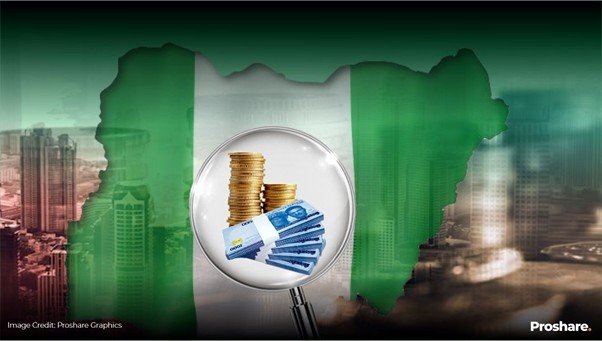In its newly published Nigeria Development Update (NDU), the World Bank calls attention to what many analysts have long hoped: Nigeria is seeing signs of genuine economic resurgence. The report, titled “From Policy to People: Bringing the Reform Gains Home,” praises the country’s recent policy reforms and macroeconomic stabilisation, but it also delivers a sincere caution: the progress so far must now be converted into more inclusive prosperity.
Between January and June 2025, Nigeria recorded a 3.9 per cent year-on-year growth in GDP, up from 3.5 per cent in the same span of 2024, according to the World Bank. This rebound is driven largely by stronger performances in the services and non-oil sectors, although oil production and agriculture also contributed. On the external front, the country’s foreign reserves have swelled past USD 42 billion, and the current account balance is now showing a surplus of 6.1 per cent of GDP, thanks to rising non-oil exports and declining oil imports.
Fiscal metrics likewise offer cause for guarded optimism. Despite the pressures of fluctuating oil prices, the federal deficit is projected to hold at about 2.6 per cent of GDP in 2025—roughly on par with 2024. Meanwhile, public debt is forecast to decline for the first time in over a decade, slipping from 42.9 per cent to 39.8 per cent of GDP.
Still, the World Bank is quick to stress that favourable macro indicators alone do not ensure widespread improvement in livelihoods. Many Nigerians, especially among the most vulnerable, remain under severe economic strain. Inflation—especially for food—continues to bite. Households that heavily rely on self-sufficiency are seeing costs skyrocket.
The NDU points out that while reforms are dismantling long-standing distortions, sustaining momentum will depend on bold steps: controlling inflation, ensuring more inclusive growth, bolstering public services, and scaling up support for those in distress. “Macro stability is a necessary but not sufficient condition,” said Mathew Verghis, World Bank Country Director for Nigeria. “The real test is whether everyday Nigerians feel the change.”

Table of Contents
Key Transformations and the Road Ahead
To bridge the gap between macro gains and people’s lived experience, the World Bank highlights three immediate priorities:
1. Tackling food inflation.
Food inflation remains a formidable challenge to stability and inclusion. Nigeria’s poor, whose budgets often allocate up to 70 per cent to food, have watched the cost of a basic food basket increase roughly fivefold between 2019 and 2024. The NDU argues that removing counterproductive trade restrictions—like import bans and high duties—along with alleviating bottlenecks in seed systems, inputs, logistics, infrastructure, and security must be central to short-term relief.
2. Making public expenditure more efficient and aligned.
Better discipline in fiscal flows is essential. The report calls for greater transparency, smarter management of Federation Account deductions, and a national compact aligning fiscal policies with development priorities—especially in human capital sectors like health and education. These reforms are seen as critical to ensure that every naira spent contributes directly to raising living standards.
3. Expanding and institutionalising social safety nets.
Reforms must extend beyond macro stabilisation to embrace inclusive and responsive social protection. The World Bank recommends the scaling up of domestically funded cash transfers for the poorest, creating a shock-responsive mechanism to buffer communities during crises, and institutionalising welfare programs that endure beyond election cycles.
Looking ahead, Nigeria’s growth trajectory is cautiously positive. The NDU estimates expansion will accelerate from 4.2 per cent in 2025 to about 4.4 per cent by 2027, propelled largely by services, agriculture, and the non-oil industry. Inflation, however, is expected to remain elevated and will require sustained monetary rigour and structural measures—particularly in food supply chains—to temper the burden on households.

From Policy Success to Everyday Impact
What these reforms and projections underscore is that Nigeria is not merely tinkering at the macro level—but has the chance to fundamentally shift the nation’s growth paradigm. Still, the devil lies in execution.
Consider food inflation. Lifting trade restrictions or reducing burdensome duties may help ease prices, but unless complemented by investment in domestic agricultural productivity, infrastructure (roads, cold chains, storage), and security across farming belts, gains may be limited or short-lived.
Similarly, improving public spending is easier said than done. Nigeria’s fiscal dynamics are complex, with multiple layers of government, entrenched interests, and persistent capacity constraints. Ensuring that funds reach health clinics, schools, and rural electrification projects requires more than well-intentioned policy; it demands strong institutional reforms, transparency, accountability, and citizen participation.
On social welfare, many programs have existed in Nigeria for years—but fragmentation, inefficiency, and dependence on external donor funding have limited their impact. The call for a domestically financed, shock-responsive safety net system speaks directly to the need for ownership, predictability, and resilience.
Yet even as challenges loom, there is a window of opportunity. When macro indicators move in the right direction, policymakers, development partners, and civil society must act decisively to ensure the gains are broad, sustainable, and felt by Nigerian households.

Why Now Matters — And What Comes Next
The phrase “time to bring home the gains” is not a rhetorical flourish—it captures urgency. Nigeria has begun to show that reform is possible and that macro disruption can be kept at bay. But the next phase must be about translating policy wins into people wins.
Nigeria is at a crossroads. The foundations have shifted: higher foreign reserves, a narrower deficit, stabilising debt levels, and stronger growth. But unless the reforms reach the farm gate, the market stall, the rural clinic, and the household budget, the momentum risks being hollow.
Success will depend on leadership and coordination across sectors and levels of government. It will depend on embedding reforms in institutional culture so they persist beyond political cycles. It will depend on elevating citizens’ voices—not only as beneficiaries but as partners in accountability.
For Nigerians weary of boom-and-bust cycles, the present moment offers reason for cautious optimism. It’s a moment to push for deeper reforms, more inclusive growth, and tangible uplift for ordinary lives. Getting the mechanics right in food systems, public spending, and social programs could make the difference between macro success and meaningful transformation.
In short: Nigeria is gaining ground—but now is the time to ensure that ground is built for everyone.
Join Our Social Media Channels:
WhatsApp: NaijaEyes
Facebook: NaijaEyes
Twitter: NaijaEyes
Instagram: NaijaEyes
TikTok: NaijaEyes





